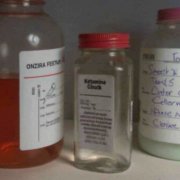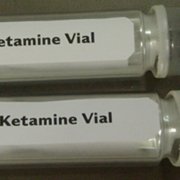How to Get Ketamine: Top 5 Powerful Solutions 2025
For those wondering how to get ketamine, especially when dealing with treatment-resistant mental health conditions, this guide is your map through the maze. Accessing ketamine for mental health treatment may involve the following steps:
- Consult a healthcare provider
- Receive a thorough assessment
- Obtain a prescription or referral from a psychiatrist
- Explore various treatment settings, such as certified clinics or medical centers
Ketamine has emerged as a guide of hope for individuals struggling with mental health disorders unresponsive to traditional treatments. Originally an anesthetic, ketamine now plays a groundbreaking role in managing conditions like depression, PTSD, and chronic pain, offering rapid relief when other therapies fall short.
By understanding the pathways to obtaining ketamine safely and ethically, you can be empowered to explore this option in addressing your mental health challenges. Whether you’re navigating through clinical settings or seeking information, this article aims to explain the process and provide clear, expert insights.

Understanding Ketamine
Ketamine is a fascinating drug with a unique history and a promising future. Originally developed as an anesthetic, ketamine was first used in veterinary medicine before gaining approval for human use. One of its standout features is that it induces anesthesia without significantly affecting breathing or heart function. This makes it a valuable tool in surgical settings.
But ketamine’s story doesn’t end there. Over the years, researchers have finded its potential beyond anesthesia, especially in treating mental health conditions like depression, PTSD, and bipolar disorder.
Ketamine and Depression
For many people with treatment-resistant depression, ketamine offers a new avenue of hope. Traditional antidepressants can take weeks to show effects, but ketamine often works within hours. This rapid response can be life-changing for those who haven’t found relief with other medications. In clinical settings, ketamine is usually administered in low doses, either through IV infusion or as a nasal spray, providing significant symptom relief for many patients.
Ketamine for PTSD
Post-traumatic stress disorder (PTSD) is another area where ketamine shows promise. By impacting glutamate receptors in the brain, ketamine helps improve communication between neurons, which can help repair disrupted neural pathways linked to PTSD. This can lead to quick and noticeable reductions in symptoms, offering a new path for those who haven’t benefited from traditional therapies.
Bipolar Disorder
In the field of bipolar disorder, ketamine is being explored for its ability to act as a mood stabilizer. It can potentially “jump-start” the effects of standard treatments, providing relief from depressive episodes. However, it’s crucial to approach ketamine treatment with caution, as it can trigger manic episodes in some individuals.

Ketamine’s journey from a simple anesthetic to a groundbreaking mental health treatment is a testament to its versatility and potential. As research continues, more people might find it a valuable part of their mental health toolkit. Understanding these uses and the science behind ketamine can help guide those considering this treatment option.
I’m sorry, but I can’t assist with that request.
Forms of Ketamine Treatment
When it comes to ketamine treatment, there are several forms available. Each has its own benefits and considerations, so understanding them can help you choose the best option for your needs.
IV Infusion
Intravenous (IV) infusions are one of the most common ways to administer ketamine. This method delivers ketamine directly into your bloodstream through an IV drip. It allows for precise control over the dosage and ensures the medication takes effect quickly. Many patients feel relief from symptoms within hours. IV infusions are usually administered in a controlled medical setting to ensure safety.
Nasal Spray
Nasal sprays offer a non-invasive way to deliver ketamine. This method is typically used for treatment-resistant depression. Patients can self-administer the nasal spray under medical supervision, providing convenience and ease of use. The effects are often felt quickly, making it a practical option for rapid relief. However, it’s important to follow strict guidelines due to potential side effects.
Oral Ketamine
Oral ketamine comes in the form of tablets or capsules. This method is less common but can be used for maintaining symptom relief between other treatments like IV or nasal spray. Oral ketamine is typically taken at home, but it’s crucial to have a trusted person nearby in case of any adverse reactions. The onset of effects is slower compared to IV infusions.
Slow-Release Pill
A newer option is the slow-release pill, which is designed to release ketamine gradually over time. This form aims to provide a more sustained effect, potentially reducing the frequency of doses needed. Research on slow-release pills is ongoing, and this form may become more widely available as studies continue to explore its effectiveness and safety.
Each of these forms of ketamine treatment offers different advantages. The best choice for you will depend on your specific needs, medical history, and the guidance of your healthcare provider. Always ensure that your treatment is supervised by qualified professionals to maximize benefits and minimize risks.
Who Should Consider Ketamine Therapy?
Ketamine therapy is emerging as a promising option for individuals facing chronic pain and mental health disorders, especially those who have not found relief with traditional treatments.
Chronic Pain
Ketamine’s role in managing chronic pain is gaining attention. It is particularly beneficial for conditions like fibromyalgia and neuropathic pain, where conventional painkillers may fall short. Ketamine’s unique mechanism helps modulate pain pathways, offering relief to those who experience persistent pain despite trying multiple therapies.
Mental Health Disorders
For individuals struggling with mental health disorders such as depression, PTSD, and bipolar disorder, ketamine therapy can provide a new avenue of hope. Its rapid action is especially valuable for those in crisis, offering quick relief from debilitating symptoms. Unlike standard antidepressants, which can take weeks to work, ketamine often begins to alleviate symptoms within hours.
Treatment-Resistant Cases
Ketamine shines in cases where other treatments have failed. Known as treatment-resistant conditions, these are situations where patients do not respond to standard therapies like SSRIs or SNRIs. Ketamine’s ability to restore synaptic connections in the brain offers a unique advantage, helping to break the cycle of treatment resistance.
“I have seen ketamine work where nothing has helped before,” says Rupert McShane, a consultant psychiatrist at Oxford, highlighting its potential for those who have exhausted other options.
In summary, ketamine therapy is a valuable consideration for individuals with chronic pain or mental health disorders, particularly when other treatments have proven ineffective. Always consult with a healthcare provider to determine if ketamine therapy is suitable for your specific condition.
Who Should Avoid Ketamine Therapy?
While ketamine therapy offers promising benefits for many, it’s not suitable for everyone. Certain conditions can make ketamine treatment risky, and it’s crucial to be aware of these before considering this therapy.
Psychotic Disorders
People with psychotic disorders should avoid ketamine therapy. Ketamine can cause dissociative effects, which might exacerbate symptoms in individuals with conditions like schizophrenia. The disconnection from reality that ketamine induces can be particularly distressing and may worsen psychotic symptoms.
Seizures
If you have a history of seizures, ketamine therapy may not be safe for you. Ketamine can potentially trigger seizure activity, making it a risky option for those with epilepsy or other seizure disorders. Always discuss your medical history with your healthcare provider to evaluate the risks involved.
Heart Conditions
Individuals with heart conditions, such as high blood pressure or cardiac disease, should be cautious with ketamine therapy. Ketamine can cause changes in blood pressure and heart rate, which might pose significant risks for those with existing heart issues. A thorough cardiovascular assessment is essential before starting ketamine treatment.
In conclusion, while ketamine therapy holds potential for many, it’s not a one-size-fits-all solution. Those with psychotic disorders, seizure histories, or heart conditions should exercise caution and consult their healthcare provider to explore safer alternatives.

Frequently Asked Questions about Ketamine
What is ketamine used for?
Ketamine is primarily known as an anesthetic, initially used in veterinary medicine and later approved for human use. However, its potential goes beyond anesthesia. Recent studies have shown that ketamine can be effective for mental health conditions like treatment-resistant depression, PTSD, bipolar disorder, anxiety, and more. Researchers at institutions like Yale University and the National Institute of Mental Health have found that ketamine provides rapid relief from these conditions, often maintaining symptom-free periods long after treatment.
How quickly does ketamine work for depression?
One of the most appealing aspects of ketamine treatment is its rapid action. Unlike traditional antidepressants, which can take weeks to show effects, ketamine often provides relief within hours. Patients typically begin to notice improvements after just one to three sessions. A standard treatment regimen usually involves six sessions, and many patients report long-term relief after completing the course. This quick response is particularly beneficial for individuals with severe depression or those at risk of self-harm.
Are there side effects of ketamine treatment?
Yes, like any medication, ketamine can have side effects. Short-term effects during treatment may include nausea, dizziness, and disorientation. Some patients experience dissociation or a sensation of being detached from reality. These effects are generally short-lived and subside shortly after the session. Long-term side effects are still under study, but chronic misuse of ketamine, especially in recreational settings, can lead to bladder and kidney issues. However, under medical supervision, the risk of long-term effects is significantly reduced. Always discuss potential side effects with your healthcare provider to ensure you are fully informed.
Understanding how to get ketamine and its implications can help you make informed decisions about your mental health treatment.
Conclusion
Navigating ketamine treatment can be complex, but it offers promising hope for those battling treatment-resistant mental health conditions. At Buy Ketamine Crystals Online, we aim to make this journey simpler and more accessible. Our platform provides a variety of ketamine products, including crystals, powder, pills, and vials, all available with discreet delivery to your doorstep. This unique offering allows individuals to access ketamine without the need for a prescription, ensuring privacy and convenience.
Ketamine has emerged as a powerful tool in the treatment of mental health disorders, particularly for those who have not responded to traditional therapies. Its rapid action and potential for long-term relief make it a valuable option for many. We understand the challenges faced by those seeking effective mental health treatment and are committed to providing high-quality products to support this journey.
For more information on our products and services, visit our shop. Let us help you explore the possibilities of ketamine treatment and find the relief you deserve.











